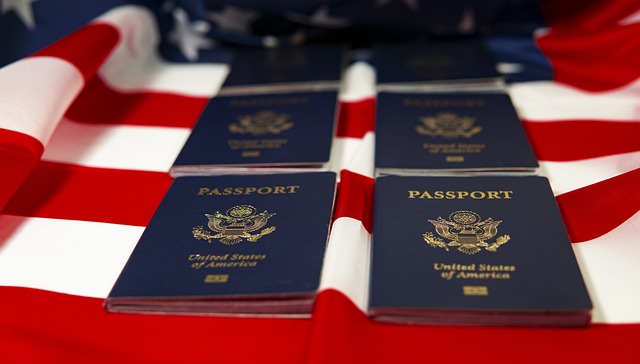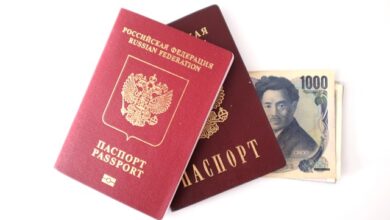French Citizenship by Descent: Who Qualifies?

French citizenship by descent, also known as jus sanguinis (right of blood), allows individuals to acquire French nationality through their parents or grandparents. This principle is a cornerstone of French nationality law and provides a pathway for descendants of French citizens to claim citizenship, regardless of where they were born. If you believe you may qualify for French citizenship through your ancestry, here’s everything you need to know.
1. Overview of French Nationality Law
French nationality law is governed by the Code Civil and combines two principles:
- Jus Sanguinis: Citizenship is passed down through parents or grandparents.
- Jus Soli: Citizenship is granted based on being born on French soil (less common but applicable in certain cases).
For those seeking citizenship by descent, jus sanguinis is the primary route.
2. Who Qualifies for French Citizenship by Descent?
To qualify, you must demonstrate a direct lineage to a French citizen. The rules vary depending on the relationship:
a. Through a French Parent
If one or both of your parents are French citizens, you automatically qualify for French citizenship under the following conditions:
- Born After January 1, 1994: You are automatically a French citizen if at least one parent was French at the time of your birth.
- Born Before January 1, 1994: You qualify if your French parent was born in France or had already been a French citizen when you were born.
b. Through a French Grandparent
While French citizenship is not automatically passed down beyond one generation, you may still qualify if:
- Your grandparent was French at the time of your parent’s birth.
- Your parent would have been eligible for French citizenship but did not formally claim it.
In such cases, you may need to prove your lineage and apply for recognition of French nationality.
c. Through Adoption
If you were adopted by a French citizen, you may qualify for citizenship depending on the type of adoption:
- Full Adoption (Adoption Plénière): Grants automatic French citizenship.
- Simple Adoption (Adoption Simple): Does not automatically confer citizenship but may allow you to apply.
3. Key Requirements and Documentation
To claim French citizenship by descent, you’ll need to provide specific documentation proving your lineage. Commonly required documents include:
- Birth Certificates:
- Your own birth certificate.
- Birth certificates of your French parent(s) and/or grandparent(s).
- Marriage Certificates:
- Proof of marriage between your parents or grandparents, if applicable.
- Proof of French Nationality:
- Documents showing that your parent or grandparent held French citizenship (e.g., French passport, naturalization certificate, or military service records).
- Translation and Apostille:
- Foreign documents must be translated into French by a certified translator.
- Some documents may require an apostille or legalization to verify authenticity.
- Residency Records:
- If claiming citizenship through a grandparent, evidence of their residency in France may be necessary.
4. Special Cases
a. Dual Citizenship
France allows dual or multiple citizenships, so acquiring French citizenship does not require renouncing your current nationality. However, check the laws of your home country, as some nations do not permit dual citizenship.
b. Lost or Unclaimed Citizenship
If your French ancestor lost or failed to claim their citizenship, you might still qualify. For example:
- A grandparent who emigrated and never registered their children with the French consulate may still pass eligibility to you.
c. Naturalization of Ancestors
If your ancestor became a naturalized French citizen before your parent’s birth, you may qualify through them.
5. How to Apply for French Citizenship by Descent
The process involves proving your connection to a French citizen and applying for recognition of nationality. Here’s how to proceed:
Step 1: Gather Documentation
Collect all necessary documents to establish your lineage and prove your ancestor’s French citizenship.
Step 2: Submit a Declaration of French Nationality
File a Déclaration de Nationalité Française (Declaration of French Nationality) with the appropriate authority:
- If residing in France: Submit to your local Préfecture .
- If residing abroad: Submit to the French consulate or embassy in your country.
Step 3: Await Verification
Authorities will review your application and verify your documents. This process can take several months.
Step 4: Receive Confirmation
Once approved, you’ll receive a certificate of French nationality (Certificat de Nationalité Française ) and can apply for a French passport or ID card.
6. Common Challenges
- Incomplete Records: Missing or inaccessible documents can complicate the process.
- Language Barrier: All correspondence and documents must be in French.
- Complex Lineage: Proving eligibility through grandparents or distant relatives may require extensive research.
7. Benefits of French Citizenship
Acquiring French citizenship offers numerous advantages:
- Freedom of Movement: Access to live, work, and study in any EU country.
- Social Benefits: Eligibility for France’s robust social security system, including healthcare and education.
- Political Rights: Ability to vote in French elections and participate in civic life.
- Cultural Connection: Strengthening ties to your French heritage.
8. Frequently Asked Questions
Q: Can I claim French citizenship if my French ancestor died before I was born?
Yes, as long as they were French at the time of their death and passed eligibility to their descendants.
Q: What if my French parent/grandparent was born outside France?
You may still qualify if they retained French citizenship throughout their life.
Q: Do I need to speak French to apply?
While fluency isn’t mandatory, basic knowledge of French is helpful for navigating the process.



